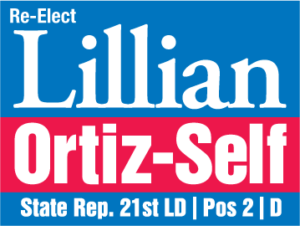Passing the Education Opportunity Gap
K-12 ‘OPPORTUNITY GAP’ BILL NEEDS STATE FUNDING
The Legislature has a constitutional obligation to educate ‘all children residing within its borders’
These include immigrants and students of color who don’t have equal opportunities or success
HB 1541 takes good step by revising school disciplinary policies, but it needs funding….
Over the past couple of years, news coverage of public schools has focused on the state Supreme Court’s insistence that the Legislature meet its constitutional obligation to fully fund basic education.
But there is another problem in our schools that is every bit as important, and that is the persistent “opportunity gap” that leaves far too many immigrant students and students of color in schools where the deck is stacked against their success. The factors include being in schools with the least experienced teachers, being subject to harsher discipline, facing barriers of culture and language that inhibit both academic progress and parent involvement, and being taught curriculum that doesn’t include students’ history or acknowledge their cultural context.
The resulting gap in academic success has persisted for decades. In our state, there is even some statistical evidence that the gap has widened in the past few years.
The federal No Child Left Behind Act was supposed to help by spotlighting the data about disparate achievement levels and holding schools accountable for improvement, but it hasn’t turned the tide. And state and local attempts to close the gap have been piecemeal, sporadic, and underfunded. Some districts have made real progress, but they are still the exception.
In 2009, our Legislature responded to this urgent problem by doing the one thing it does so well: It created a committee to study the problem and make recommendations.
The Educational Opportunity Gap Oversight and Accountability Committee , which includes educators, advocates and legislators, dug into its work and found, among other things, that kids of color are more likely to be suspended or expelled for up to a full academic year for “failure to comply” offenses that do not threaten the health or safety of others. These can include very minor infractions.
Being out of school for extended periods does not, needless to say, make students more successful. Instead it increases their chances for dropping out and getting into more trouble.
In the regular legislative session that ended Thursday night, Reps. Sharon Tomiko Santos (D-Seattle) and Lillian Ortiz-Self, (D-Mukilteo), who co-chairs the oversight committee, were finally able to persuade the Senate to pass 4SHB 1541, which attempts to put a dent in the opportunity gap by reforming school discipline polices. The goal is to reduce the amount of time students are suspended or expelled and to ensure that they have access to educational services even when they are not in school.
The bill calls on schools to beef up cultural competence and English language learning training for teachers, expand student services and parent engagement, gather more data about which groups of students are most at risk for school failure, and hire more educators of color.
This bill has been introduced every year for the past five legislative sessions, but hasn’t passed because of disagreement about its discipline provisions. This year, that disagreement finally faded away.
But there’s a catch: A Senate amendment makes the work of implementing several of the bill’s provisions subject to appropriations in the budget.
When the Legislature finally passes a budget in special session, we will find out whether there is really a $3.1 million commitment to living up to the constitutional mandate to educate “all children residing within its borders.”

